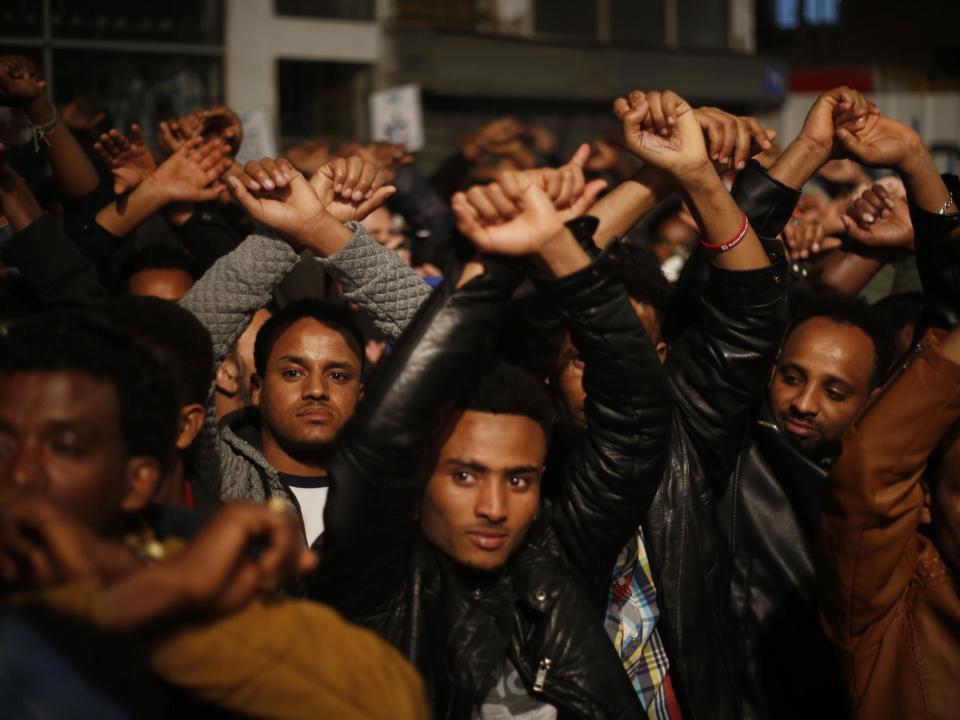Thousands of African migrants protest against Israel's plans to deport them

Thousands of African asylum seekers, migrants and their supporters are protesting against Israel’s plans to deport them.
The government has given the group until 1 April to leave the country for an unnamed African destination in exchange for $3,500 (£2,500) and a plane ticket.
They face indefinite imprisonment if they refuse.
Demonstrators carrying signs saying ”We’re all humans” and “Refugees and residents refuse to be enemies” marched through the streets of the south Tel Aviv neighbourhood of Neve Shanaan, where there is a large migrant community.
Channel 10 TV estimated 15,000 people joined the protest, while Haaretz said the march drew a 20,000-strong crowd.
According to the UN refugee agency, there are 27,000 asylum seekers from dictatorial Eritrea and 7,700 from war-torn Sudan currently living in Israel.
It is reported that the asylum seekers will be deported to Rwanda and Uganda, although both deny they have struck any kind of deal with the Israeli government.
Those who have already arrived in Rwanda report having their documents confiscated and having basic rights denied.
UNHCR said in a recent report that only nine asylum seekers deported to Rwanda have actually stayed there.
Israel considers the vast majority of the migrants to be job seekers and says it has no legal obligation to keep them. But critics including Israeli doctors, writers and Holocaust survivors have called the government plan unethical and a stain on Israel’s image as a refuge for Jewish migrants.
Israel's prison service has also criticised the plans, saying it cannot house the migrants indefinitely.
Most asylum seekers travel overland to Israel via the border with Egypt and claim they cannot return because of the threat of persecution by their home countries’ authoritarian governments.
Associated Press contributed to this report

 Yahoo News
Yahoo News 